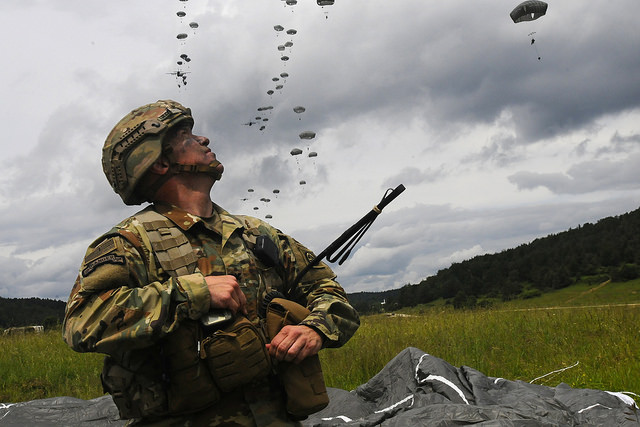 [T]he alliance today is confronted by Russia’s ability to suddenly seize limited swaths of territory along its periphery, including that of the Baltic states and Poland.
[T]he alliance today is confronted by Russia’s ability to suddenly seize limited swaths of territory along its periphery, including that of the Baltic states and Poland.
Indeed, Moscow could potentially complete such aggression before the alliance’s political authorities can determine and agree on what had transpired. NATO would then have to decide whether or not it would be worth the costs and risks of reversing that loss of territory.
To counter such a contingency, NATO members agreed at Friday’s summit to deploy battalion level forces to Poland, Lithuania, Latvia and Estonia to deter Russian aggression. “[T]hese battalions will be robust and they will be multinational,” NATO Secretary General Jens Stoltenberg said. “They make clear that an attack on one ally will be considered an attack on the whole alliance….”
What should this mean in practical terms? A credible NATO presence will require:
Intelligence, Surveillance, and Reconnaissance (ISR) Assets: These help mitigate the danger of surprise by a nearby aggressor, giving NATO forces time to move to defensive positions.
Air Defense: Russia’s airpower and missile threats are significant, meaning air defense — and possibly missile defense — capabilities will be needed to protect these battalions.
Lethality: If NATO forward-based units are to impose costly losses on an aggressor, they must bristle with firepower, including robust anti-armor capabilities, and perhaps even their own artillery and tanks.
Integrated NATO-Host Nation War Plans: The war plans that guide these NATO units should be integrated with those of their host nations to ensure full synchronization of efforts by NATO and national forces in time of crisis and conflict.
Reinforcement: The alliance must be postured to reinforce on short notice its forward-based assets. With this in mind, the alliance will have to launch in the near future its own division-level exercises focused on the logistical and combat challenges of this mission.
NATO Command Authority: When confronted by an aggressor whose advantages include proximity, speed, and massive firepower, NATO must delegate to its commanders the authorities necessary for them to marshal in real time alliance military assets in the event of provocation and/or aggression. The reality is that there may be no time for North Atlantic Council deliberations.
Ian Brzezinski is a senior fellow at the Atlantic Council’s Brent Scowcroft Center on International Security. The views expressed are his own and based on testimony to the U.S. Senate Committee on Foreign Relations.
Image: Col. Colin Tuley of the 82nd Airborne Division, June 15, 2016 (photo: Sgt. Michael Giles/ U.S. Army National Guard)
